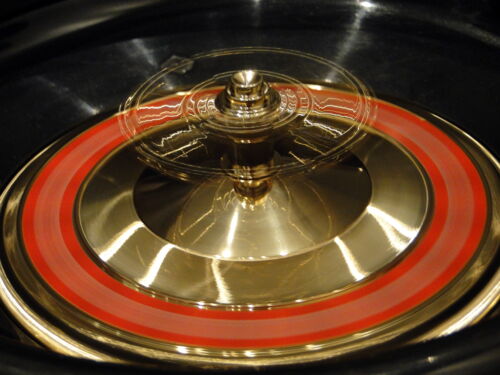Blog

Socotec: More than just words, apparently
Dec 7, 2018
Socotec is another vivid example of Private Equity involvement and strategies in TIC. Its parent Cobepa acquired a 67% share in the company in February 2013, in deal together with French private equity company Five Arrows Managers. Until mid-2016, the Belgian investment company then patiently observed a steady, but rather sluggish growth – revenues stood at EUR 516m in 2015, a mere EUR 40m more than three years ago. Cobepa then chose to install a new CEO, who subsequently embarked on a more aggressive growth strategy with a significant M&A element. The target is to achieve a revenue of EUR 800m by 2020 and to “become the European leader in TIC in the Construction and Infrastructure sectors” by then.
Since Hervé Montjotin’s arrival, things have developed more dynamically, with the acquisition of Environmental Scientifics Group alone adding EUR 110m of revenue to the group’s accounts. We have noted two interesting themes:
- Socotec aims to build additional national platforms in Europe; the acquisitions of ESG in the UK, ZPP in Germany and DIMMS in Italy are intended to strengthen or create such. Interestingly, Socotec does not appear to be too picky if a “platform target” only fits in a broader sense. The business models acquired range from specialized construction engineering and construction-related ground inspection services in Germany, to environmental services in the UK, to surveying and environmental measurements for infrastructure and Oil & Gas in Italy.
We think that this flexible strategy accounts very well for the nature of the “Industrial TIC Services” segment, which is more or less a national play. Socotec’s expansion strategy is based on a consistent general theme, but does not attempt to build some kind of Pan-European structure that is difficult to make work anyway. - With the acquisition of AJA Registrars, Socotec is driving its (Management) Certification business outside Europe. One may criticize that this does not really fit to the self-set Europe-focused goal, but we think that Socotec has recognized an opportunity here and snapped up an interesting target.
On a side note: In Germany, the Group now claims to “operate from 17 locations, with 800 people generating more than EUR 80m in revenue” – enviable even for larger non-German TIC players, maybe especially for those who recently have decided to more or less withdraw from the German Industrial TIC Services market. Germany could become a battlefield for Industrial TIC Services, in particular if Socotec really turns out to be the “last man standing scale provider of highly routine services”, as some believe.
Our takeaway: Socotec is another PE-amplified second-tier player that is gearing up and who could begin to really hurt the incumbents. Be it complexity or complacency that has deterred them from doing so far until now, the Tier-1 TIC players should finally acknowledge that something is happening on the lower decks. Socotec’s ambitions appear modest to date, but who says that this has to stay this way – especially if a new PE parent requested an even faster pace of expansion?
This could entail a fight for market share in Industrial TIC Services, which are not really growing anymore in Europe, maybe at some point escalating to a price war. Or, as those from other industries would call it: Competition.

Intertek/Alchemy: The name tells it all
Nov 23, 2018
There are a number of aspects that could be debated concerning Intertek’s acquisition of Alchemy, a US-based provider of what has been labeled “People Assurance solutions”. First, the still ambiguous term of “Assurance” itself, which in our view to a large extent only subsumes a number of established TIC services under a fancy and cool-sounding new term – in the case of Alchemy e.g. what others call “Training”.
Second, how significant the opportunity of transferring the service to other industries really is, because it’s far from being novel there. And third, whether the strong demand of the North American food processing industry with its large share of unskilled (and in some cases illegal) low-pay workers for such a “learn, train and monitor how to do the job right”-solution translates into similar demand in other industries with considerably different, higher-skilled and trained workforces.
While these points may or may not be subject for debate, it is another point that caught most of our attention: the strikingly high purchase price of almost half a billion USD that Intertek was willing to pay for a USD 66m business.
In its press statement, Intertek provides a 5-year forward guidance, to shed a bit of light on (and justify?) the economics of the deal. Double-digit growth rates may arouse a certain suspicion in the current TIC industry environment, but let’s leave this aside for a moment and believe in 20% growth in every year until 2023 and an EBITDA margin of 33.3% then.
Even with this, Intertek will have paid an 8.8 EBITDA multiple (based on 2023 financials as calculated above) – not mentioning the stunning EBITDA multiple of 21.8 based on 2018e financials. This dwarfs even many of the aggressive Private Equity deals in the industry and the USD 730m Moody acquisition (11.1-13.4 EBITA).
That being said, there might be powerful hidden synergy potentials unbeknown to somebody not involved in the deal. Hence, we might systematically undervalue the target and come to unfair and misleading conclusions. However, after looking at the target’s business model, we arrived at the questions pointed out above, which we consider as valid ones.
From our point of view, the rationale behind this acquisition is not straightforward, the business plan is ambitious (to say the least) and the purchase price looks very high (both in absolute and relative terms). In other words: this deal feels like quite a big bet and in our opinion is another clear indication that M&A in TIC seems to spiral out of control.

JSTI/Eurofins/TestAmerica: Money talks
Nov 16, 2018
When Eurofins recently announced to acquire the US environmental testing laboratory TestAmerica from its Chinese parent JSTI, an engineering and infrastructure monitoring and testing specialist, one of the TIC industry’s most interesting stories came to a sudden and surprising end. JSTI had acquired TestAmerica only two years ago in September 2016, in a deal that was hailed as the first major China-US cross-border deal in environmental testing and that JSTI had described as “genuinely strategic” and as a building-block and key step in the global expansion of its business.
In these heavily politicized days, it may seem likely that this Sino-American business combination was finally overwhelmed and thwarted by the growing economic tensions between the two countries. In such a narrative, JSTI finally realized that the deal is unlikely to work going forward in an environment of mutual disadvantaging, and “opted for the bird in the hand”, i.e. selling the business for a decent price while still possible. Indirectly, this would imply a “cave donaldum”-logic – “Trump as the trigger”.
The truth is probably a lot less dramatic and less influenced by politics, as far as we are able to tell based on the facts available.
Deal rationale 1: It seems that JSTI increasingly lost the belief that the idea can be implemented successfully and that the cooperation will work in the end and deliver the envisaged results . A clear indication can be found in the Executive Summary of JSTI’s 2017 Annual Report, where management admits that “a significant difference exists between the two companies reg. relevant laws and regulation, accounting and management systems, business styles and corporate cultures” and that “it is uncertain whether the integration will be successful and whether the economic goals of the transaction can be attained”.
Deal rationale 2: The achievable return on investment probably was too tempting. With Eurofins paying an acquisition price of USD 175m, by rule of thumb JSTI has made a USD 50m profit on its initial investment in TestAmerica – an impressive 40%, even though the company has hardly grown in the last two years. Who could resist such a payback that, especially if the outlook (both operationally and strategically) is rather dim?
Deal rationale 3: Eurofins seem to expect “the usual” significantly higher synergies than JSTI from improved lab operations and Economies of Scale, which directly translate into higher EBITDA and valuations. But apart from the “integration machine” argument, there are also strategic reasons: With the deal, Eurofins become the undisputed No. 1 in environmental testing in the US and significantly expand the geographic footprint.
Not surprisingly, our takeaway thus is that the idea of cross-pacific Chinese-American TIC business combinations is not dead because of this – in our view, it wasn’t a wrong strategic rationale that killed the original JSTI-TestAmerica deal. Rather, it fell prey to a unique opportunity too compelling.
In a broader perspective however, the deal still raises the question whether only very ambitious, hyper-efficient and aggressive players such as Eurofins find M&A value-accretive in TIC at the moment. Price tags have reached a level that maybe only these players find palatable.
This rather might be perceived as another vivid example of a certain recklessness reg. M&A in TIC. 40% price increase at no growth in just two years, in a segment that has hardly expanded in the last years – these are the economics of a price bubble.
JSTI probably was more level-headed and cold-blooded than many Western counterparts might have been. It chose to relinquish its strategic plans because the short-term profit of a premature exit seemingly was too tempting. Sharp thinking and logical action, but at the same time not a good sign for the TIC industry if strategic investors happily abandon it.